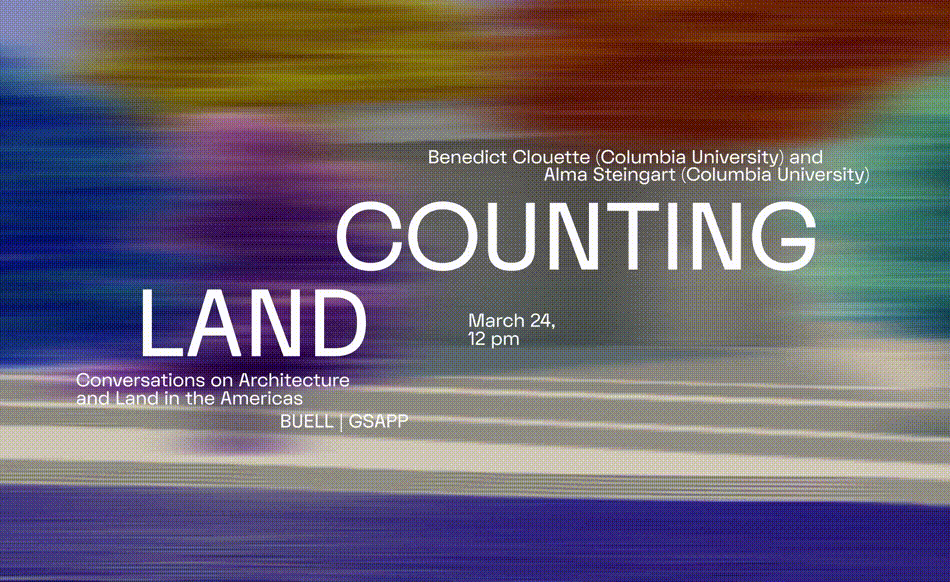
March 24, 12PM
There has never been a way to account for land—its size, location, or monetary value—without also counting people. From 17th Century cadastral surveys to contemporary gerrymandering, the questions of what to build, for whom, and where, have always depended on the question: “for how many?" This event will address a postwar moment when spatial overlaps between physical and political boundaries were deliberately redesigned in the United States. Alma Steingart (Assistant Professor in the Department of History at Columbia University) will present on the impact of digital algorithms on redistricting in the 1960s; Benedict Clouette (Doctoral Student in Architecture at Columbia GSAPP) will discuss the role of electoral maps in political negotiations over large-scale urban projects in Chicago in the 1950s.
Benedict Clouette is a doctoral candidate in architectural history at the Columbia University Graduate School of Architecture, Planning and Preservation. His writings and interviews have appeared in Harvard Design Magazine, Volume, Domus, The Architect’s Newspaper, and San Rocco, and he is the author, with Marlisa Wise, of Forms of Aid: Architectures of Humanitarian Space (2017).
Alma Steingart, an assistant professor in the Department of History at Columbia University, researches the interplay between American politics and mathematical rationalities. Professor Steingart’s current project, Accountable Democracy, examines how mathematical thought and computing technologies have impacted electoral politics in the United States in the twentieth century. Her first book, Axiomatic: Mathematical Thought and High Modernism, is forthcoming with the University of Chicago Press (Fall 2022). Before joining Columbia University, Steingart was a Junior Fellow of the Harvard Society of Fellows and a predoctoral fellow of the Max Planck Institute for the History of Science in Berlin. She earned her PhD in 2013 in the Program in History, Anthropology, and Science, Technology, and Society at the Massachusetts Institute of Technology (MIT). Steingart’s work has appeared in Social Studies of Science, Grey Room, and the Los Angeles Review of Books. Her work is supported by a CAREER Award from the National Science Foundation.